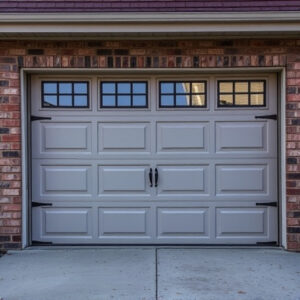Garage door grinding noises often result from worn parts, misaligned tracks, or loose components. Regular maintenance, prompt repairs by professionals, and addressing wear & tear are crucial to prevent and solve these issues, ensuring quiet operation. Diagnose noise characteristics, inspect for damage, and balance doors to fix grinding sounds. Timely action, like lubricating hinges or replacing springs, prevents severe problems and safety risks, with expert assistance available when needed.
Experiencing a grinding noise from your garage door can be frustrating and even dangerous. This article delves into the common causes behind this issue, providing a comprehensive guide for homeowners. We’ll walk you through diagnosing the problem, offering effective solutions for noise reduction, and sharing preventive measures for long-term fixes. If you’re wondering why is my garage door making grinding noises, you’ve come to the right place for answers and solutions.
- Common Causes of Grinding Garage Door Sounds
- Diagnosing the Issue: Steps to Take
- Effective Solutions for Noise Reduction
- Preventive Measures: Long-Term Fixes
Common Causes of Grinding Garage Door Sounds
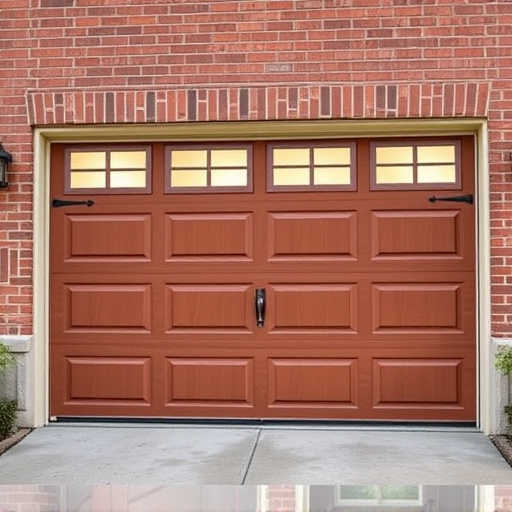
Garage doors are designed to open and close smoothly, but various factors can lead to grinding noises that disrupt your home’s tranquility. Understanding these common causes is essential for homeowners seeking to address the issue efficiently. One primary reason for grinding sounds could be worn-out or damaged components, especially in older garage door systems. Over time, rollers, hinges, and bearings may degrade, causing friction and resulting in an unpleasant metal grinding noise each time the door cycles.
Another frequent culprit is misaligned tracks, which can create significant wear and tear on the door’s mechanism. When the tracks are not properly aligned, the garage door may develop a wobble, leading to squeaking or grinding as it moves. Moreover, loose or broken parts, such as worn belt loops or frayed cables, can also contribute to these noises. Homeowners in the Tucson area, from Oro Valley to Catalina, should note that timely maintenance and repairs are crucial in preventing such issues. For instance, a simple adjustment of tracks or replacing worn-out parts by professional services like Commercial Overhead Door Service can effectively fix a metal grinding sound in the garage while ensuring a quiet and smooth operation for your garage door opener installation Tucson.
Diagnosing the Issue: Steps to Take
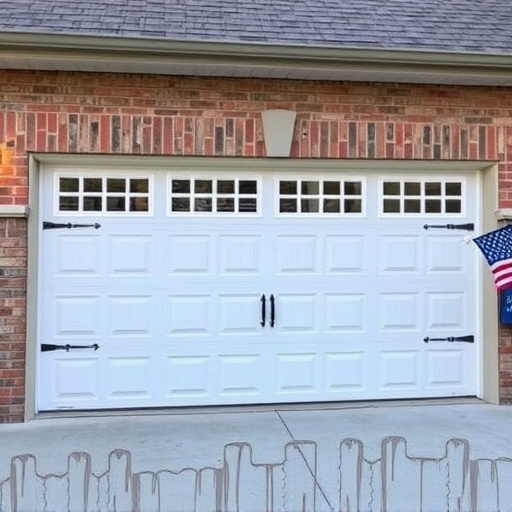
When your garage door starts making unusual noises, such as grinding, it’s crucial to identify the root cause before attempting any fixes. Diagnosing the issue accurately is the first step in ensuring effective and lasting solutions. Here’s a breakdown of what to do:
1. Listen Carefully: Start by observing the specific noise—is it a high-pitched squeal, a deep grind, or more of a creak? Note when the noise occurs, whether during opening, closing, or idling. This can provide valuable clues about the problem area.
2. Inspect for Wear and Tear: Many garage door issues stem from worn-out parts like rollers, bearings, or hinges. Check these components for any signs of damage, rust, or misalignment. If you identify any worn out garage door parts, such as those in need of replacement in Catalina, Sahuarita, or Casas Adobes, it’s important to address them promptly to prevent further complications.
3. Examine the Door and Track: Ensure that your garage door is balanced and properly aligned with the tracks. A misaligned door can cause excessive friction and lead to grinding noises. Consider visiting us at Garage door opener installation experts for professional evaluation and adjustments if necessary.
Effective Solutions for Noise Reduction
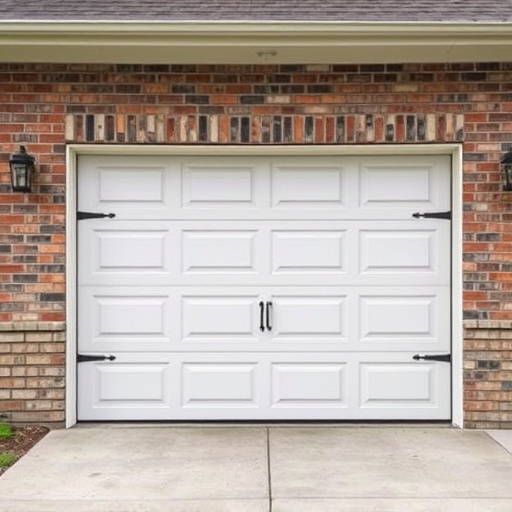
Many homeowners in Tucson wonder, why is my garage door making grinding noises? Persistent grinding or squeaking sounds are often signs of worn-out components within your garage door system, particularly the tracks, springs, or opener itself. Left unaddressed, these issues can escalate into more serious problems, leading to unexpected breakdowns and safety hazards.
Fortunately, effective solutions for noise reduction exist. For instance, lubricating hinges and rollers with a high-quality lubricant designed for garage doors can significantly minimize squeaks and grinds. Additionally, regular inspection and adjustment of the door’s balance can prevent excessive strain on parts, thereby reducing noise levels. If the problem persists, consider investing in a quiet garage door opener installation in Tucson from a reputable local service like Emergency Garage Door Repair Tucson. They can offer tailored solutions to ensure your garage door operates smoothly and quietly, enhancing both functionality and peace of mind.
Preventive Measures: Long-Term Fixes
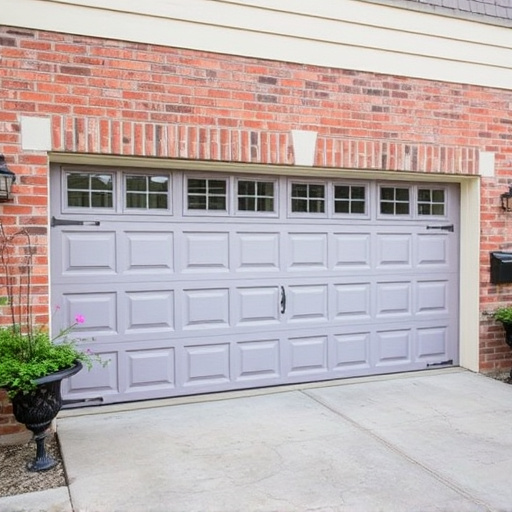
Regular maintenance is key to preventing long-term issues with your garage door, such as why is my garage door making grinding noises. Conducting routine noisy garage door safety checks in Marana can help identify potential problems early on. Overhead door quietening solutions in Phoenix are available for those experiencing grinding or squeaking sounds, ensuring a smoother and quieter operation. One effective measure is to lubricate the door’s moving parts, especially the hinges and tracks. This simple step can significantly reduce friction and wear, preventing excessive noise.
Additionally, inspecting and replacing worn-out components like springs (especially in the Tucson area) before they fail is crucial. Regular inspections by a professional handyman can help catch these issues early. As a matter of convenience, visit us at Garage door opener installation experts for tailored solutions to your noisy garage door problems. They can perform thorough assessments, offer recommendations, and implement effective fixes to keep your door functioning optimally and quietly.
If your garage door is emitting grating, scraping, or squealing sounds, it’s likely due to worn-out components or misalignment. Regular maintenance and immediate attention to these issues can prevent more serious damage and costly repairs. By understanding the common causes, following diagnostic steps, employing effective solutions, and adopting preventive measures, you can quiet your garage door and ensure its longevity. Remember, addressing grinding noises early on is key to maintaining a smooth-operating, safe, and reliable garage door system.
